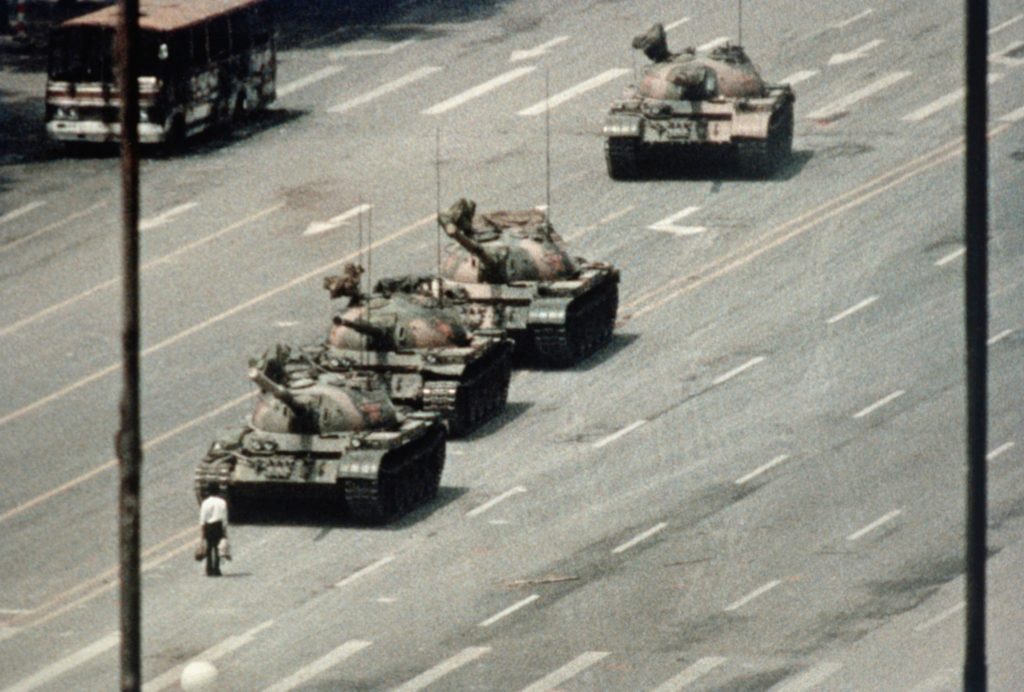China’s New Strategy On Human Rights Raises Concerns
Sep 10, 2023 | Pratirodh Bureau
China faced a storm of outrage over the Tiananmen Square massacre in 1989 and condemnation of its mass incarceration of Muslim Uyghurs in recent years. Each time, the Chinese government has had to deal with the diplomatic fallout of its own repression.
For more than three decades, China has struggled to contain criticism of its human rights record. It faced a storm of outrage over the Tiananmen Square massacre in 1989 and condemnation of its mass incarceration of Muslim Uyghurs in recent years. Each time, the Chinese government has had to deal with the diplomatic fallout of its own repression.
To deflect this criticism, Chinese diplomats and propagandists have promulgated a series of different claims.
On the one hand, they have tried to rally developing countries behind the idea that the “right to subsistence” trumps concerns over other human rights.
Other times, the government has justified its dictatorship as an expression of traditional Chinese “Confucian values”. These emphasise the importance of duty and social harmony over individual rights.
Now, however, the government has formed a coherent ideological strategy in response to this criticism. China is seeking not merely to resist but to dismantle a foundational idea of the post-Cold War international order – the universality of human rights.
A New Approach Cloaked In ‘Democratic’ Values
The government’s new strategy is called the “Global Civilisation Initiative”. And it’s become a major weapon in the Chinese party-state’s foreign propaganda arsenal.
The initiative was first announced by Chinese President Xi Jinping in March. It complements two previously announced (and similarly named) diplomatic tools: the Global Development Initiative and Global Security Initiative.
Together, these intentionally vague concepts are designed to expand China’s influence over international institutions and norms. They also advance Xi’s plan for the “great renewal of the Chinese nation”.
In announcing the Global Civilisation Initiative, Xi put forth lofty ideals about creating a “global network for inter-civilisational dialogue and cooperation” based on “common values of humanity”, such as “justice, democracy and freedom.”
Since then, these themes have been widely echoed by China’s media outlets and its foreign propagandists.
The truth, however, is the initiative represents a kind of modern-day tribute system in which an all-powerful China sits atop a hierarchy of like-minded states from the Global South.
In exchange for kowtowing to Beijing, the Chinese government offers developing countries lucrative trade and investment opportunities and the ability to emulate its authoritarian political model.
A Selective Approach To Human Rights
China’s new initiative could have significant repercussions for human rights.
First, in contrast to the respect for universal human rights in the liberal international order, China’s strategy calls for a cultural relativist approach based on each country’s “national conditions and unique features.”
In other words, there shouldn’t be a universal standard of human rights at all.
Instead, each country should develop human rights protections according to its own culture and traditions. As China’s former foreign minister, Qin Gang, said earlier this year: “There is no one-size-fits-all model in the protection of human rights.”
This approach is problematic because it allows governments to apply international human rights standards selectively. It also offers a smokescreen for China’s own human rights violations.
A Network Of Despots With Similar Views
A second way the Global Civilisation Initiative threatens human rights is by promoting greater collaboration between illiberal and authoritarian regimes.
In announcing the initiative, Xi made the point of differentiation between China and Western democracies clear: “The [Chinese Communist Party] will continue to safeguard international fairness and justice and promote world peace and stability. In advancing modernisation, China will neither tread the old path of colonisation and plunder, nor the crooked path taken by some countries to seek hegemony once they grow strong.”
To promote this new strategy, Chinese officials have also been using benign-sounding language, such as “dialogue”, “cooperation” and “common prosperity”.
The Chinese state media even leaned on the ancient Silk Road as proof China has long “embodied the spirit of cooperation, mutual learning and mutual benefit”.
The aim is to build a broad coalition of countries seeking an alternative to the Western-led international order. In this new Chinese-led model, countries refrain from imposing their own values on one another. Interference in internal affairs is also strictly prohibited.
Again, this strategy can provide a smokescreen for China. It creates a global network of like-minded regimes whose diplomats can shield Beijing’s human rights abuses from scrutiny and criticism in international forums. They can also vote in support of Beijing’s resolutions at the United Nations.
In return, adhering to the Global Civilisation Initiative can provide greater space for illiberal governments to pursue their own goals and punish political opponents without fear of condemnation.
As a self-serving instrument for the projection of China’s power and influence, the success of the Global Civilisation Initiative will depend on its level of buy-in from developing states. In a world in which democracy and human rights are in decline and authoritarianism is on the rise, this may be readily forthcoming.
(This article is republished from The Conversation under a Creative Commons license. Read the original article here)
